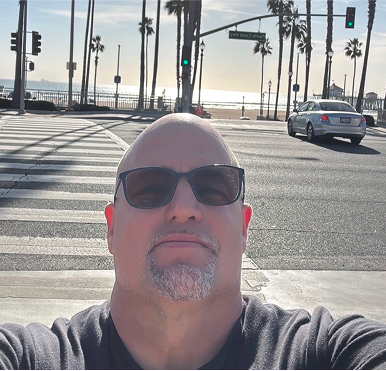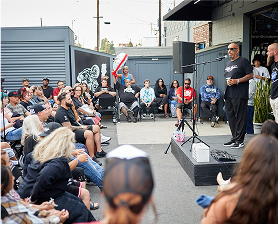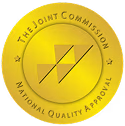Aftercare Program
Your Continuing Path to Lasting Recovery in Anaheim

What Is an Aftercare Program?
Aftercare is a structured, ongoing support system that begins once formal treatment ends. It provides continued therapy, accountability, and community engagement to maintain sobriety. Our Anaheim aftercare program ensures you remain connected and supported after completing intensive treatment.


How Our Anaheim Aftercare Works
Aftercare planning starts early in treatment. Before discharge, we develop a personalized plan that includes:
- Continued Therapy: Schedule weekly or biweekly individual and group sessions.
- Medical Follow-Up: Monitor medications and mental health with regular check-ups.
- Support Group Engagement: Connect with local AA, NA, or SMART Recovery meetings.
- Relapse Prevention Planning: Identify triggers and develop actionable coping strategies.
- Sober Living Options: Recommend supportive housing if your home environment is unstable.
Example:
- Initial Meeting: Finalize your relapse prevention plan with your therapist.
- Weekly Sessions: Continue with group meetings and individual check-ins.
- Community Integration: Attend local recovery meetings in Anaheim, with opportunities in Orange County and Fullerton to reinforce support.
Benefits of Our Anaheim
Aftercare Program
Ongoing Support
Aftercare keeps you connected to a structured recovery routine:
- Regular Check-Ins: Stay accountable through weekly sessions.
- Family Involvement: Engage loved ones with family therapy and support groups.
- Peer Support: Build relationships with others on the same journey.

Relapse Prevention
Implement proven strategies to manage high-risk situations:
- Actionable Plans: Use a written relapse prevention plan with specific triggers and steps.
- Immediate Intervention: Access support immediately if a craving arises.
- Flexible Intensification: Adjust the level of care during challenging periods.

Community Connection
Stay engaged with Anaheim’s vibrant recovery network:
- Local Meetings: Access over 40 recovery meetings weekly in Anaheim, Orange County, and Fullerton.
- Alumni Groups: Join our alumni program for ongoing mentorship and social activities.
- Volunteer Opportunities: Participate in community outreach to reinforce your purpose.

Rediscovering joy, connection, & purpose
Everyone deserves the space to imagine a better life & the support to make it real.
Through compassion, community, and a commitment to real change, we walk alongside every person ready to rise, heal, and create a future they’re proud of.
.jpg)
Who Can Benefit from Aftercare?
Consider Aftercare If You:
- Have completed residential, PHP, or IOP and need continued support.
- Want to integrate recovery into daily life with structured accountability.
- Desire ongoing therapy and community connection to prevent relapse.
- Need to develop practical coping skills for real-world challenges.
Real-World Benefits in Anaheim

Local Advantages
Our aftercare program leverages local resources:
- Access to recovery meetings and community support throughout Anaheim, Orange County, and Fullerton.
- Guidance on sober living and vocational resources in Fullerton and surrounding areas.
- Integration with local healthcare providers for ongoing medication and mental health management.
How Aftercare Supports Lasting Recovery
Continued engagement in therapy and community meetings reinforces the skills learned in treatment. Regular check-ins help catch early warning signs of relapse and provide immediate support, smoothing your transition to long-term sobriety.
Frequently Asked Questions
Aftercare planning starts during treatment, with services beginning immediately upon discharge.
Contact our team immediately; we can intensify support or re-engage you in higher-level care if needed.
Our Videos
Our defects don’t define us.
Grateful. Thankful. Appreciative.
The difference between sobriety and recovery
Client Testimonials
.png)













.png)






.png)






.png)






.png)






.png)




















.png)













.png)






.png)













.png)






.png)




















.png)













.png)













.png)






.png)













.png)






.png)
























































.png)













.png)






.png)






.png)






.png)






.png)




















.png)













.png)






.png)













.png)






.png)




















.png)













.png)













.png)






.png)













.png)






.png)


























































A Community That Lifts You Higher
Healing doesn’t happen in isolation—it thrives in community.
Our commitment to creating connection extends far beyond the walls of treatment. Every week, our clients, team, alumni, and local residents come together to participate in meaningful, sober events that celebrate life, growth, and belonging.
Magic House Sundays
Join us every Sunday for Magic House—a music-filled, open-door recovery event that feels more like a celebration than a meeting.
.png)
Sober Events & Awareness
Get involved in events that matter—like our fentanyl awareness days, sober community gatherings, and the annual Recovery Summit.

Recovery That Moves With You While You Grow
Be part of weekly our outings like beach volleyball, park days, & sober holiday parties to keep life fun and full.

Begin Your Recovery Journey
Take Action Today
Contact our Anaheim admissions team immediately to begin your assessment. We verify insurance benefits and schedule treatment within 24–48 hours.

Your Ongoing Path
To Sobriety
Invest in your recovery with structured, continuous support. Our Aftercare Program helps you maintain progress, navigate challenges, and build a fulfilling sober life in Anaheim while leveraging resources in Orange County and Fullerton. Let our proven system guide you to lasting sobriety.

%20(1).avif)
%20(1).avif)
.avif)


.png)
